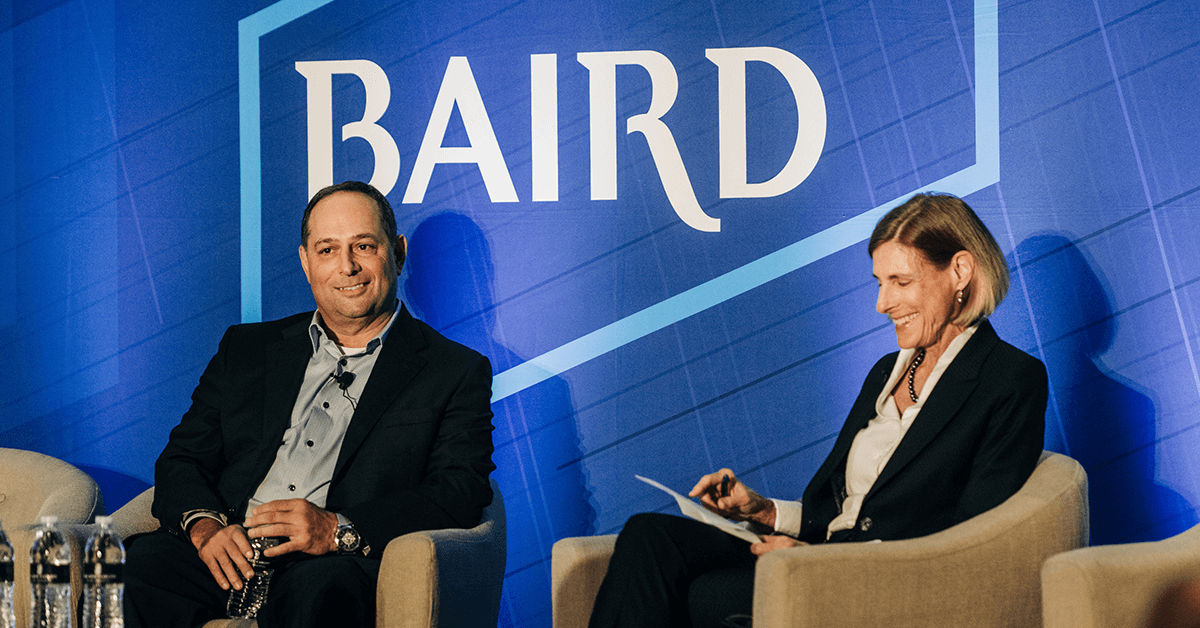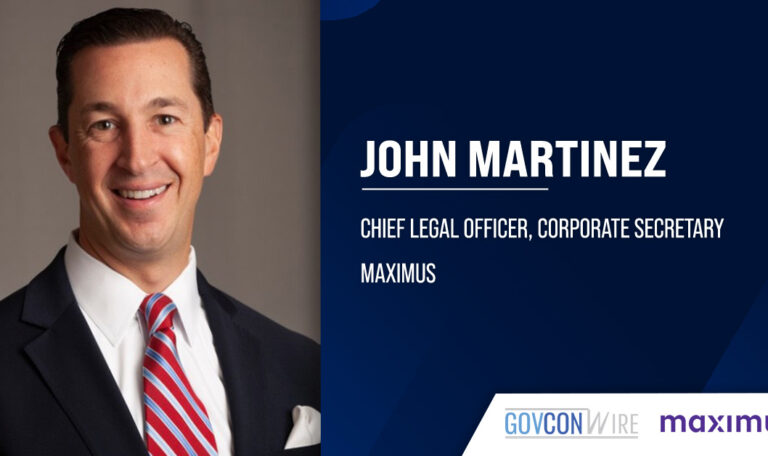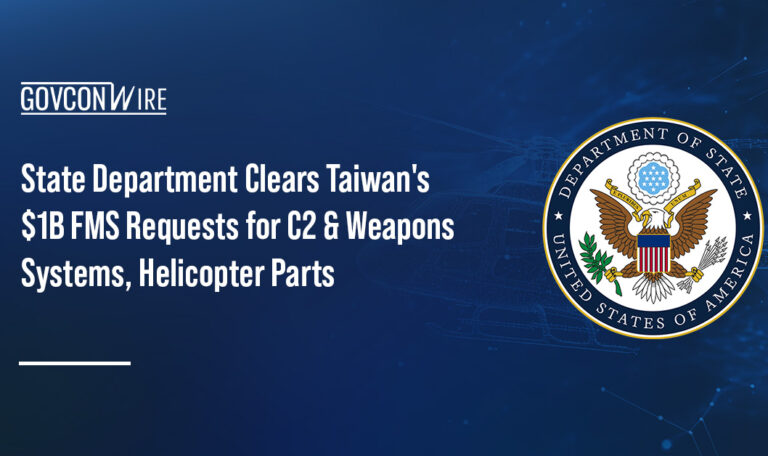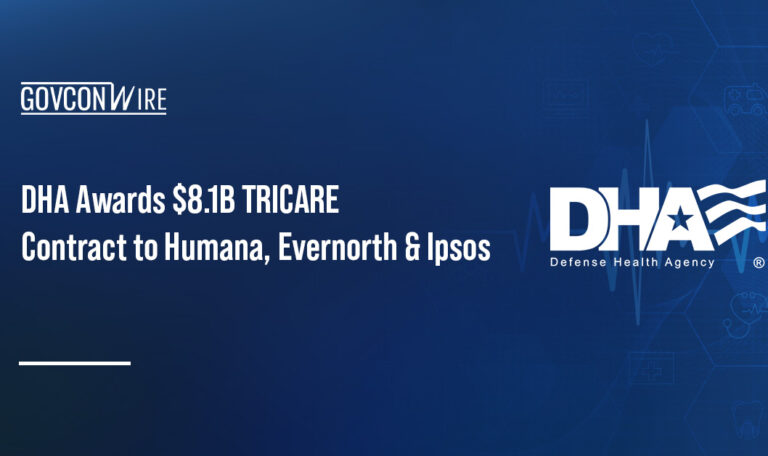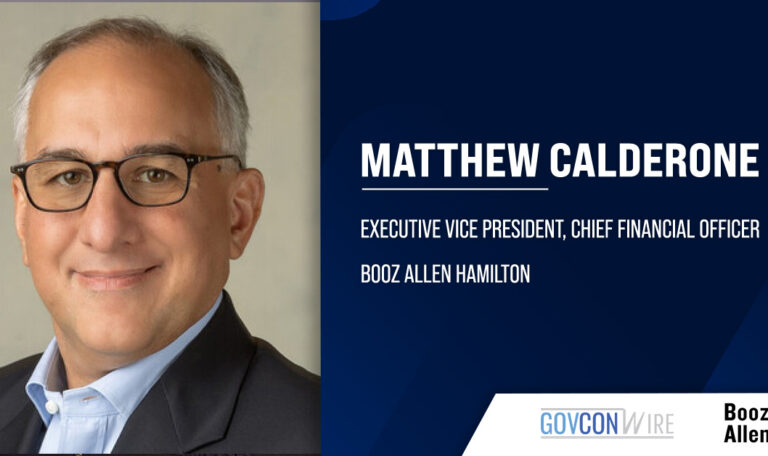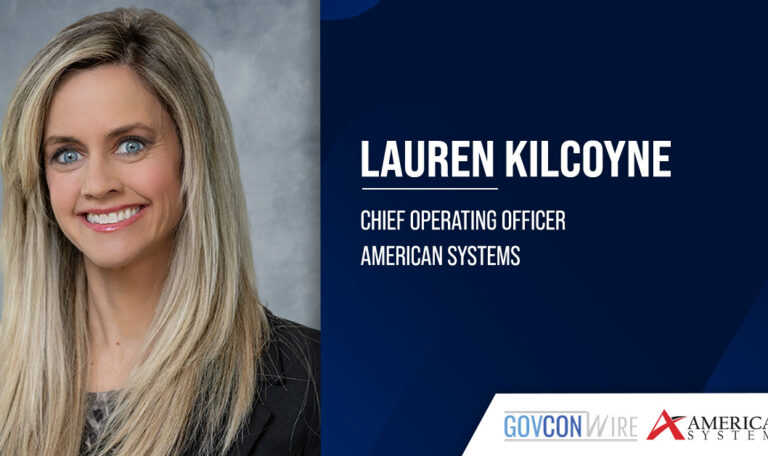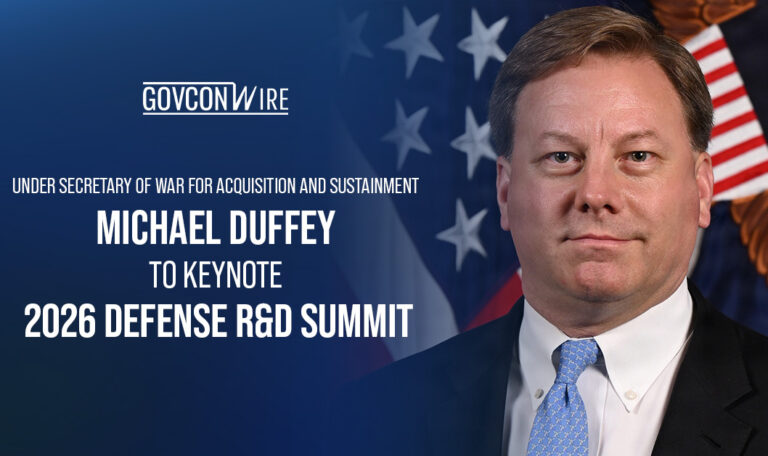The cybersecurity specialists at Nightwing are running a young enterprise: less than a year old, the Dulles, Virginia-based company is still working to establish itself in a crowded market. But they have some help. They possess the distinct advantage of a Raytheon heritage — before April, Nightwing was the cybersecurity and intelligence unit at the company now known as RTX. They’re also backed by investment management firm Blackstone. As CEO John DeSimone told an audience at Baird’s 7th Annual Defense & Government Conference last month, Nightwing is “like a $2 billion startup.”
This means they “get to put a lot of agility into the business,” though DeSimone shared with his onstage conversation partner (and Nightwing board member) Teresa Shea that they’re still looking to become more agile and nimble. Nightwing currently operates in three areas: cyber attack and defense; technical collections and security communications; and global issue management support. The team’s reach and breadth is wide already, but DeSimone said they’re looking to deepen their involvement in command, control, communications, computers, cyber, intelligence, surveillance and reconnaissance, a.k.a. C5ISR, as well as the space domain.
Successful Commercial Partnership
DeSimone doubts Nightwing will dive heavily into the commercial space with offerings like adware. But he did cite a successful collaboration with a U.S. commercial satellite company.
“We got a phone call when the Ukraine War started asking for help. And we went in and actually took our offensive capabilities and put it on from a defensive standpoint … We didn’t have to use [our emulation capabilities], but we found over a hundred vulnerabilities in two ‘zero-days’ in a very short period of time. [We] helped them solidify their network and their assets,” DeSimone shared.
“So I think we’re going to look to start to add that technology, maybe expand to help some of our U.S.-based companies, especially in space or critical infrastructures, bring some of our offensive tools to help them in their defensive mission,” he continued.
Retention Through the Mission
The well-intentioned work to protect national security, referred to simply as “the mission,” is what DeSimone feels drives the team at Nightwing above all else. Even through the tough times of the COVID pandemic and the pull toward a remote model, “our workforce is there for the mission … [the] number one attraction,” the CEO said.
But despite this inherent draw, he’s conscious that he and the other organizational architects need to maintain a culture that’s multifaceted in its attractiveness. He said the company began its journey as a standalone enterprise by articulating the 10 things they want to define their employee experience, as well as the 10 pillars of their customer delivery.
Central to the employee-focused plan is emphasizing a relationship to technology, DeSimone discussed.
“Investing in talent is critical. So we’ve created … the offensive lab. We’ve figured out how to manufacture resource knowledge behind talent. So the training and the tools that our teams need to be successful has been top priority for us to execute and deliver on,” the company leader described.
The proof that it’s working is that attrition at Nightwing is reportedly at “an all-time low.”
Leadership Style
Another aspect of retaining desirable talent is not putting on deceptive fronts for staff and having honest follow-through as a leader. A smart team isn’t going to “suffer fools,” says DeSimone, so he is committed to executing a “high say:do ratio,” to listening intently to his employees and to being transparent about what he does and doesn’t understand about a situation or project.
“I don’t believe in consensus, but I believe in dialogue, and then you lock and you load and you go … everything else takes care of itself,” he said.


